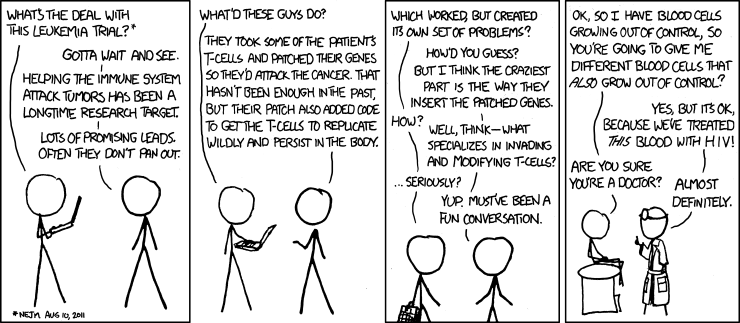The drug works. End of story
Of late I've witnessed plenty of angst amongst pharma marketers trying to discern the 'narrative' behind the product they sell.
I've sat in too many workshops, the purpose of each is to apply The Hero's Journey to the fact that Drug A has an effect on Tumour Type B. Invariably, inevitably the analogy collapses under the weight of the exercise. Is it the drug that's the hero or is it the doctor? If the drug is the hero then doesn't that relegate the doctor to the role of squire to some tumour-fighting knight-errant? Easier to agree that the doctor is hero, which makes our drug Excalibur. But what about the competition? Aren't they the ones we're really fighting against, even though it's poor form to describe them as the enemy? Or is it the patient? People with cancer can be pretty damn heroic y'know. After a while the only thing that we can agree upon is that the tumour is the bad guy.
It's around this time that someone jokes that this exact exercise is probably being attempted by a dozen groups somewhere around the world at this exact moment. So we take lunch.
Afterwards we agree that The Hero's Journey is a bit cliché and we cast around for other narratives and so arrive at Journey From Darkness to Light. But the medical team shuts that one down immediately because it implies a promise that our trial data won't support. We are talking about cancer after all.
There is only one successful narrative for pharma products: it works. If you're lucky you might be able to say it works in a surprising way. Say this in the right way and let the doctor see for himself (in the right patient). After which we pretty much lose control of the situation. The doctor either believes that it works or she doesn't.
Energy spent trying to reframe the customer's relationship with the disease in question is energy wasted. Doctors know the condition better than we ever will because they live with it every day. The more poetic amongst them will describe their jobs in terms of warfare ('battle') or travel ('journey') or vigilance ('watch'n'wait') or strategy ('chess game') or problem solving ('cracking the code', 'solving the puzzle') but that's them using metaphor to describe their world to us. Medicine is all those things and many more and we do well to listen to the words used by the individual.
But it is a mistake for us to gather around a flipchart to concoct some grand narrative that suits our purpose. In the sales situation it will add a layer of complexity, as metaphor often does, or oversimplify or distort our message in some other way. Instead, speak plainly and let the facts do the rest.
